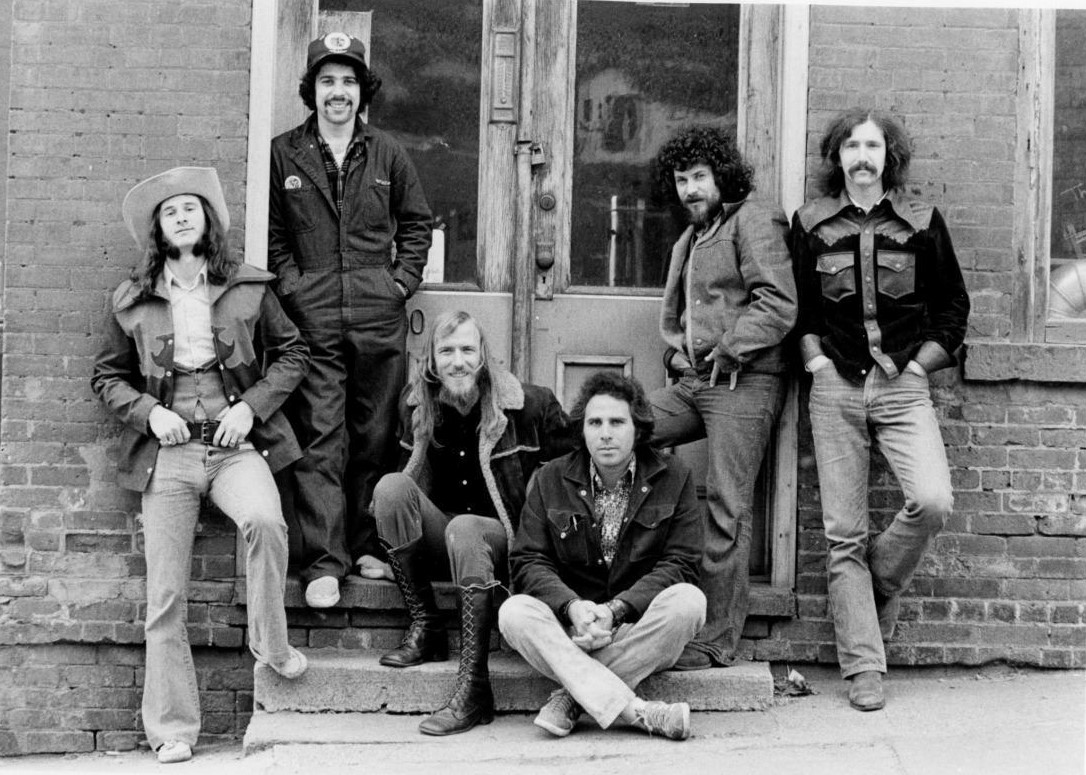Edgar Winter – “I’ve Got News For You” (2018) review
Edgar Winter – I’ve Got News For You (Cherry Red Records, 2018)
Known best as the brother of blues guitar legend Johnny Winter, for a period in the 1970s Edgar Winter was one of rock music’s brightest stars, first with his band White Trash and later with The Edgar Winter Group. Between 1971 and 1977 Edgar released three albums with each band, resulting in three top twenty five albums and three top thirty five singles. With “I’ve Got News For You” Cherry Red Records, UK, compiles these six albums, supplemented by twenty eight bonus tracks, a total of ninety spread across the six discs, and documenting this spectacular period in the career of this talented multi-instrumentalist.
The box set opens with 1971’s “Introducing Jerry LaCroix” credited to Edgar Winter’s White Trash. The jazz tinged blues rock album showcases Edgar’s versatility, featuring him on lead vocals, piano, organ, alto sax and celeste. Sharing headliner status with lead vocalist, tenor sax and mouth harp player Jerry LaCroix, the LP, which reached on #111 on the Billboard charts, mixes funk and jazz with the underlying rock and roll, giving the band a distinctive sound and setting the stage for much bigger things to come. In its own right, the album has some great moments, highlighted by “Keep Playing That Rock “N” Roll” a hot rocker featuring a guest appearance by former McCoy’s guitarist Rick Derringer, who produced the album, and in addition to his fine lead work on this tune, which saw release as a single b-side, also contributes an incredible solo on “Good Morning Music.” In addition, Edgar’s famous brother guests on the tune which serves as this collection’s title set, delivering an impressive performance on guitar. The album’s ten tracks are supplemented here by five bonus tracks including both side’s of the album’s singles, “Keep Playin’ That Rock “N” Roll” c/w “Give It Everything You Got” and “Where Would I Be” which was backed by the previously mentioned “Good Morning Music.” While neither of the singles dented the charts, they did display the musical talents of White Trash which would soon bear great fruit.
Disc two contains Edgar’s breakthrough double LP live effort, “Roadwork” released in 1972 and topping at #23 on the album charts, achieving gold record status. Again produced by Rick Derringer, “Road Work” features a well oiled versatile ensemble which mixed elements of rock, jazz and blues in just the right proportions. The album has many highlights, among them the Derringer penned “Still Alive And Well” on which he contributes lead vocals and a sizzling wah wah filled guitar solo. The tune was later recorded by Edgar’s brother Johnny, and served as the title track to one of his best known albums. However, the real gem of the LP is another Derringer tune which would soon become his signature song, and a sizable single hit for him “Rock And Roll, Hoochie Koo.” On this recording, however, lead vocals and lead guitar are handled by Edgar’s famous brother, Johnny, and a sizzling rocker it is. The centerpiece of “Road Work” however, is the band’s seventeen minute cover of J.D. Loudermilk’s “Tobacco Road” which allows the group to stretch out and show its chops, with Derringer’s heavy blues riff and stinging lead guitar leading the way. Derringer’s performances shine throughout, with his wah wah work on “Cool Fool” and “Do Yourself A Favor: being two notable examples. This release adds three bonus tracks to the LP’s original ten, including both sides of the single culled from the album, “I Can’t Turn You Loose” c/w the previously noted“Cool Fool.”
Disc three features Winter’s magnum opus, 1972’s “They Only Come Out At Night” credited to The Edgar Winter Group, which climbed all the way to #3 on the album charts and contains Winter’s two biggest hit singles, the timeless instrumental, “Frankenstein” a chart topping hard rock classic featuring Edgar’s ARP synthesizer performance and unforgettable guitar work by Ronnie Montrose. Once again produced by Rick Derringer, “They Only Come Out At Night” is filled with accessible and commercially viable rock performances. In fact, nearly every track was suitable for single release. In addition to “Frankenstein” the #14 hit single “ Free Ride” marked the highlight of the writing collaborations of Edgar and fellow multi-instrumentalist Dan Hartman, who would, like Derringer, become an essential part of Winter’s commercial success, The song is presented in both its album and single versions which are quite distinct from each other, especially in the guitar performances by Montrose. A third single, “Hangin’ Around” also penned by Winter and Hartman stalled at #65 on the charts but deserved a much better fate, and has aged extremely well. The feel good rocker “We All Had A Real Good Time” yet another Winter/Hartman collaboration garnered much FM airplay and would have been an excellent choice as a single. “They Only Come Out At Night” is also notable for the cover art which features a bare chested Winter seemingly captured mid-flight. The album, filled with its carefree, upbeat sound went on to sell two million copies, achieving double platinum status, far and away Edgar’s biggest selling LP, and certainly a hard act to follow up. The album’s ten tracks are joined by nine bonus cuts, including the single edits of “Frankenstein” and “Free Ride” as well as the non-LP b-side “Catching Up”
Disc four is comprised by Winter’s 1974 release “Shock Treatment” a fine follow up which topped at #13 on the album charts and contained more fine pop rock performances. Guitarist Montrose was replaced by producer Rick Derringer and the LP features seven tracks written by Dan Hartman, who also contributed the lion’s share of lead vocals on the album. Another commercially accessible effort filled with prospective singles, “Shock Treatment” contained Edgar’s last top 40 single, Hartman’s “River’s Risin’” which topped at #33. However, the Hartman penned “Easy Street” is another fine pop rocker with a great hook, that certainly had potential to climb the charts. “Rock & Roll Woman” yet another Hartman composition is a real highlight, with Derringer’s lead line and solo standing out. Six bonus cuts accompany the original album here, including single and mono edits of “River’s Risin’” “Someone Take My Heart Away” and “Easy Street.”
Disc five contains 1975’s The Edgar Winter Group “With Rick Derringer,” the title evidence of how integral the producer/guitarist had become to Winter’s musical releases. A funkier, ,more soulful recording than its predecessors, the album stalled at #124 on the charts, Unlike the two previous albums Dan Hartman contributed only three of the LP’s twelve cuts, with Winter and Derringer taking on much larger composing roles. The album certainly has some fine efforts, with the Derringer penned, hard rocking J.A.P. (Just Another Punk) a real standout. The tune is a hot rocker with Derringer’s guitar pushing the beat, and the song is reminiscent of those found on Derringer’s solo efforts. The tracks are much more eclectic, however, as evidenced by “Nothin’ Good Comes Easy” which features classical guitar, banjo and dobro by Paul Prestopino and “Can’t Tell One From Another” with acoustic bass by John Siegler. This eclecticism may well explain the album’s poor sales performance, but certainly does not reflect the quality of the music found within its grooves. Three bonus cuts join the original LP including mono and stereo mixes of the single edit of “Diamond Eyes” a keyboard based pop rock tune penned jointly by Winter and Hartman that sadly failed to chart.
The set closes with 1977’s “Recycled” credited to Edgar Winter’s White Trash and marking the return of Jerry LaCroix. The album, produced by Winter himself, is a return to Edgar’s jazzier side, and although filled with fine performances, didn’t catch on with record buyers and failed to crack the Billboard Top 200 album charts. Overall “Recycled” has a Sly Stone feel, and features fine wah wah guitar work by Floyd Radford on the album opener “Puttin’ It Back” and some nice mouth harp performances by LaCroix as on “The In And Out Of Love Blues.” Winter himself shines on Fender Rhodes electric piano on the album closer “Competition.” The LP’s original tracks are supplemented by mono and single edits of “Stickin’ It Out,” a funky jazz rocker which features fine piano and guitar work but failed to chart.
“I’ve Got News For You” subtitled “featuring The Edgar Winter Group & Edgar Winter’s White Trash 1971-1977” documents Edgar Winter at his musical and commercial high point. The set’s six discs and ninety tracks are supplemented with a 20-page full color booklet, featuring complete track listings, album credits, an essay by Malcolm Dome, and photographs of album and single art work. In addition the set features a wonderful mastering job by Tony Dixon and comes in a sturdy clamshell box. “I’ve Got News For You” is highly recommended for Edgar Winter fans, as well as fans of jazz rock and carefree upbeat pop rock music alike, a most pleasant combination and a wonderful reminder of how Winter was a constant on the album and singles charts, as well as AM and FM radio, during the early to middle 1970s.
– Kevin Rathert
© Copyright http://www.psychedelicbabymag.com/2018
Array






Good review. Although it would have been better if you toned down the mention of how the albums did in the charts, it's great that you reviewed this to let more people know about the release, showing that 2018 proves to be a promising year in reminding people of a time when music was great.
Glad you enjoyed the review. The charting information was included for several reasons, for instance the fact that for a two year period Edgar was a huge name and then due to the mere vagary of the market he was nearly forgotten, a sad commentary in my mind. Also, it reinforced the fact that when Edgar teamed with Dan Hartman and Rick Derringer they were a most formidable force. I realize it is an arbitrary measure, but it was essential to the fate of his career, and an indication of how fleeting fame can be.